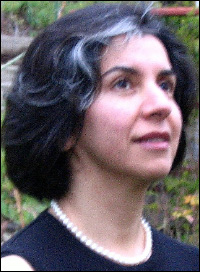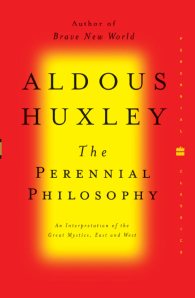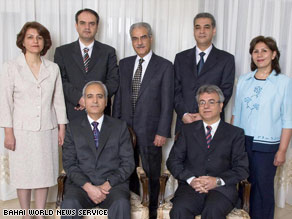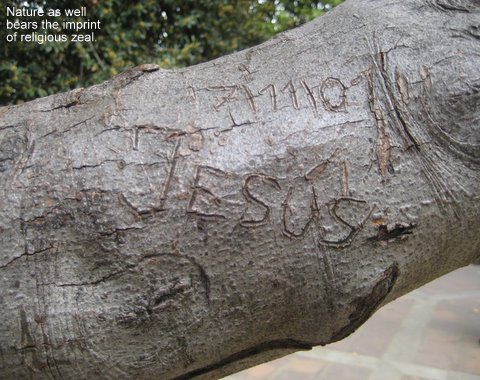 Living in this post-modernist time one of the problems is knowing who the bad guys are. I’m sure fundamentalism is a bad thing – because it bears bad fruit.
Living in this post-modernist time one of the problems is knowing who the bad guys are. I’m sure fundamentalism is a bad thing – because it bears bad fruit.
For me Terry Eagleton is the best writer about the human aberration known as fundamentalism. (SEE Chap 7 of After Theory)
His new book is Reason, Faith, and Revolution: Reflections on the God Debate
Karen Armstrong is the best popular presenter of the historic perspective of religions and their fundamentalisms. (SEE The Battle for God)
Her new book is The Case For God
Saying that science has made religion redundant is rather like saying that thanks to the electric toaster we can forget about Chekhov, says Terry Eagleton in this gloriously rumbustious counter-blast to Dawkinsite atheism. Eagleton, who is perhaps Britain’s most venerable cultural critic, is not a Christian, though he was in the 1960s. But he continues, unfashionably, to be a Marxist, and his critique of the New Atheists is rooted in the historical materialism of revolutionary socialism, but with a thread of poetry woven through it.
In Reason, Faith, and Revolution: Reflections on the God Debate, his starting point, perhaps paradoxically – and paradoxes sparkle throughout this coruscatingly brilliant polemic – is that Dawkins, along with fellow atheist Christopher Hitchens (or Ditchkins, as he mischievously conflates the pair) purport to be advocates of science and reason. And yet they are disgracefully cavalier with both.
Eagleton is not anti-science or reason. He merely points out that science has produced Hiroshima as well as penicillin. And liberal rationalism, in addition to its many undoubted triumphs, has provided the intellectual underpinning for exploitative capitalism and the wanton destruction of the environment on an unprecedented scale. Indeed Eagleton is stronger on reason than Ditchkins, for he thinks carefully about what his opponents say whereas Dawkins & Co prefer knockabout rhetoric to serious engagement with mainstream religious thought.
This is, then, a demolition job which is both logically devastating and a magnificently whirling philippic. Ditchkins, he says, makes the error of conflating reason and rationality. Yet much of what seems reasonable in real life turns out not to be true. And much that is true, like quantum physics, seems rationally impossible.
For all that, the book levels a broadside at faith too. The history of religion is “a squalid tale of bigotry, superstition, wishful thinking, and oppressive ideology.” Just as communism has misunderstood Marx, he argues, so the Church has betrayed Christ by backing an establishment of warmongering politicians, corrupt bankers and exploitative capitalists for centuries. The Jesus of the gospels, he insists, was as radical a revolutionary who took the side of “the scum of the earth”. The love he offered was as transformative as true socialism. It is easy to see why a lot of people will not be happy with this book. Much of what it says is too true.
Karen Armstrong is radical in a different way in The Case For God which is subtitled What Religion Really Means. What it does not mean, she agrees with Eagleton, is the fundamentalism cited as normative by Ditchkins. Armstrong surveys the intellectual history of religion in a way that is more comprehensive and measured but much less fun. What it shows is that the modern way of thinking about God, as a big bloke with superhuman powers, is a comparatively modern invention. Until 300 years ago almost no-one thought that, and nor do many religious believers today.
Religion, she argues, is traditionally not something that people believe, but something they do – using liturgy, ritual, prayer, meditation and spiritual exercises to discover an awareness of the transcendental inside themselves. It is not rooted in what the Greeks called logos (reason) but mythos (stories which may not be factual but which carry some universal truth about how humans behave). It is not something to be comprehended but something beyond the limits of language which is to be absorbed intuitively like music.
After the Enlightenment, when science and reason became the dominant lens through which we viewed the world, this truth was downgraded. God became a being who stood outside the world to create it, rather than the apotheosis of all that is good in it. This crude reduction suited both fundamentalists and dogmatic atheists alike; atheism in any period always seeks to define the God it doesn’t believe in. The subtlety of theologians like Aquinas, who happily posited the possibility that the world had no origin at all, is forgotten. The intuition of the pre-modern era for spiritual imagination and meditative humility has now calcified into scientific literalism.
So we see a number of revealing shifts in meaning. “I believe” has become scientised to mean “I assert these propositions to be empirically correct.” What it originally meant was “I pledge my heart and my loyalty”. Jesus was asking for commitment not credulity. Similarly the word dogma now means a ruling laid down by authority. But originally it meant a teaching that cannot be expressed verbally but which is intuited through the liturgy.
Fundamentalists, of both the bible-bashing and the Dawkinsite variety, are very anxious to make clear assertions about the God they believe in or reject. By contrast this older apophatic tradition was much keener to assert what cannot be said about God than what can. Ditchkins thinks rationality can bring him to a place of absolute certainty; the old tradition, dating back to Socrates, used reason to arrive in a place where we realise we really know nothing at all. Eagleton makes the same point. Reason operates in a social and cultural context. Modern atheists have their myths and unexamined assumptions too, like the idea that humanity is riding an upward-bound escalator of progress. So wedded is Dawkins to this that he once described the Holocaust as “a temporary setback”. The old Marxist is scathing. “If ever there was a pious myth and a piece of credulous superstition, it is the liberal-rationalist belief that, a few hiccups apart, we are all steadily en route towards a finer world.”
Terry Eagleton’s is a more realistic and darker vision which he characterises as “tragic humanism”. But it holds out the possibility of revolutionary transformation.
Ditchkins’ liberal rationalism, by contrast, is defeatist and has endorsed a cruel and irrational capitalism in which the poor get poorer, the rich richer and the planet overheats. Religion might not have the answers but it asks the better questions.
Richard Dawkins: The God Delusion
The Oxford academic, Richard Dawkins, came to prominence as an ardent atheist, expounding on his gene-centred theory of evolution in his book, The Selfish Gene. His most recent work, The God Delusion, published in 2006, argues that a supernatural creator almost certainly does not exist and that faith qualifies as a delusion or false belief. The book has been a runaway success; selling more than 1.5 million copies by November 2007 and translated into 31 languages.
Both are well-reviewed HERE by Paul Vallely
Both according to Vallely make room for God, or at least being human in a non-narrow-materialist way.
Here are a couple of tasters from Vallely’s review. Firstly about Eagleton;
In Reason, Faith, and Revolution: Reflections on the God Debate, his starting point, perhaps paradoxically – and paradoxes sparkle throughout this coruscatingly brilliant polemic – is that Dawkins, along with fellow atheist Christopher Hitchens (or Ditchkins, as he mischievously conflates the pair) purport to be advocates of science and reason. And yet they are disgracefully cavalier with both.
Eagleton is not anti-science or reason. He merely points out that science has produced Hiroshima as well as penicillin. And liberal rationalism, in addition to its many undoubted triumphs, has provided the intellectual underpinning for exploitative capitalism and the wanton destruction of the environment on an unprecedented scale. Indeed Eagleton is stronger on reason than Ditchkins, for he thinks carefully about what his opponents say whereas Dawkins & Co prefer knockabout rhetoric to serious engagement with mainstream religious thought.
This is, then, a demolition job which is both logically devastating and a magnificently whirling philippic.
and about Armstrong,
Religion, she argues, is traditionally not something that people believe, but something they do – using liturgy, ritual, prayer, meditation and spiritual exercises to discover an awareness of the transcendental inside themselves. It is not rooted in what the Greeks called logos (reason) but mythos (stories which may not be factual but which carry some universal truth about how humans behave). It is not something to be comprehended but something beyond the limits of language which is to be absorbed intuitively like music.
After the Enlightenment, when science and reason became the dominant lens through which we viewed the world, this truth was downgraded. God became a being who stood outside the world to create it, rather than the apotheosis of all that is good in it. This crude reduction suited both fundamentalists and dogmatic atheists alike; atheism in any period always seeks to define the God it doesn’t believe in. The subtlety of theologians like Aquinas, who happily posited the possibility that the world had no origin at all, is forgotten. The intuition of the pre-modern era for spiritual imagination and meditative humility has now calcified into scientific literalism.
So we see a number of revealing shifts in meaning. “I believe” has become scientised to mean “I assert these propositions to be empirically correct.” What it originally meant was “I pledge my heart and my loyalty”. Jesus was asking for commitment not credulity. Similarly the word dogma now means a ruling laid down by authority. But originally it meant a teaching that cannot be expressed verbally but which is intuited through the liturgy.
I really hope that Armstrong and Eagleton consider working in co-operation – they are both great truth-tellers.
-0-
To read the article to which this post refers go HERE

 Editor’s Note: Dr. Vahdati is an Iranian-American human rights activist and freelance writer who has published extensively on the effects of the death penalty, women’s rights and gender issues in Iranian journals. Dr. Vahdati published the following article in the online Persian journal Iran-Emrooz, addressed to Mrs. Fakhri Mohtashamipour, wife of Seyyed
Editor’s Note: Dr. Vahdati is an Iranian-American human rights activist and freelance writer who has published extensively on the effects of the death penalty, women’s rights and gender issues in Iranian journals. Dr. Vahdati published the following article in the online Persian journal Iran-Emrooz, addressed to Mrs. Fakhri Mohtashamipour, wife of Seyyed  Seeing is believing – this shows incontrovertible proof that bigfoots exist!
Seeing is believing – this shows incontrovertible proof that bigfoots exist!




 Living in this post-modernist time one of the problems is knowing who the bad guys are. I’m sure fundamentalism is a bad thing – because it bears bad fruit.
Living in this post-modernist time one of the problems is knowing who the bad guys are. I’m sure fundamentalism is a bad thing – because it bears bad fruit.














